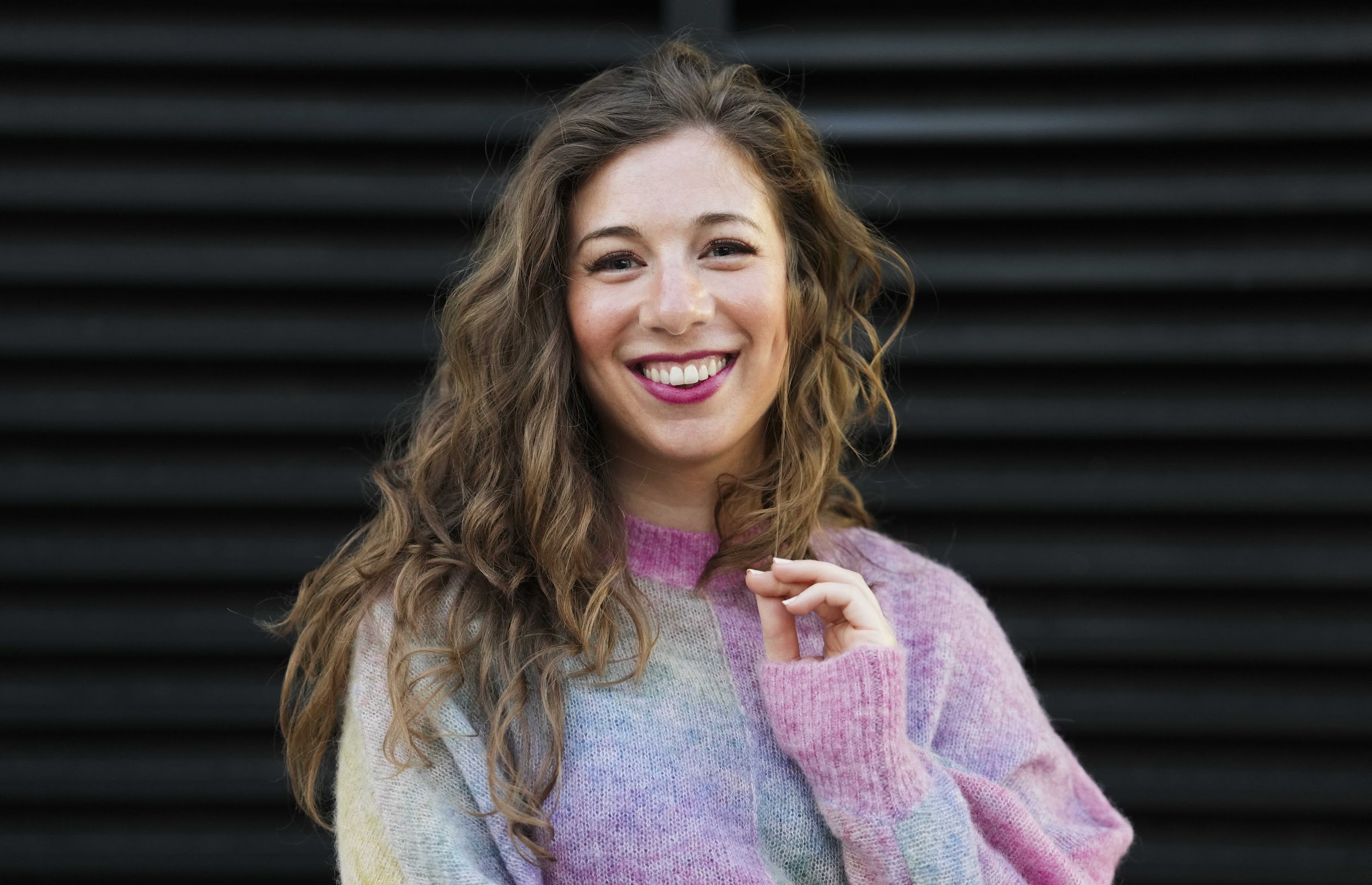The Eternal Sunshine of Juno Temple
After a lifetime playing heavy, dramatic roles—and weathering the lonely, painful pandemic year—the Ted Lasso actress is overjoyed to be playing one of the sunniest characters on TV's warm-and-fuzziest show.
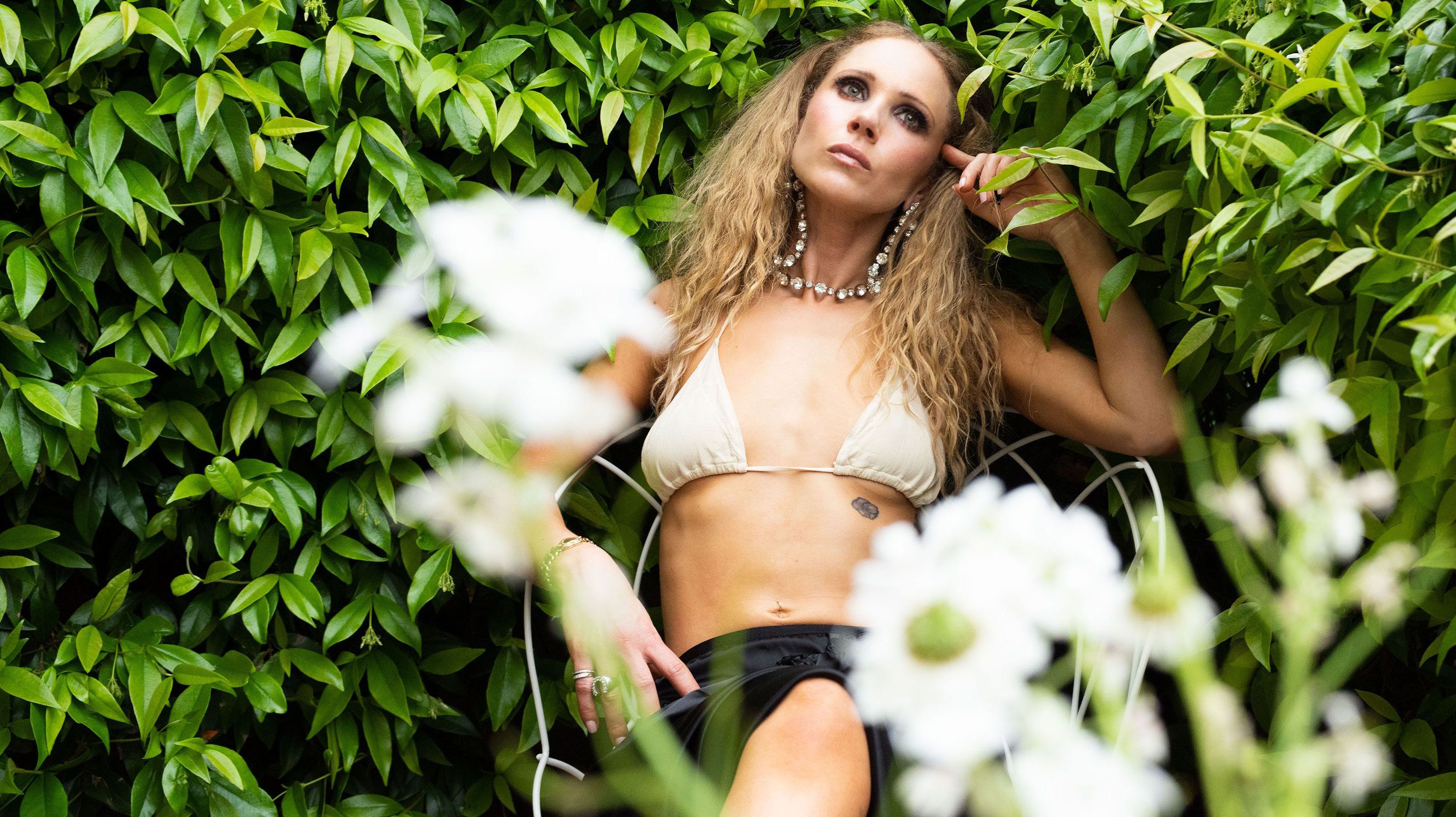
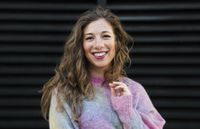
When Juno Temple was 14, she told her parents she wanted to be an actress. Her dad was a film director, her mom a producer, so they knew exactly what she was getting into, which is why they tried to talk her out of it. “Oh no. Oh, shit. Are you sure?” she remembers them saying to her. “You’re going to be told ‘no’ all the time.” But high off some formative cinematic experiences—Peter Jackson’s Heavenly Creatures really did a number on her—Temple would not be deterred. Her parents found out about an open audition, and her mom sent her off. “You want to be an actress?” she said. “Go see how many other people want to be actresses.”
The open call was for 2006’s psychological thriller Notes on a Scandal. Temple got the part. Her mom’s reply, through tears: “That's not how it's supposed to go.” Temple’s second audition was for 2007’s Academy Award–nominated drama, Atonement, and though Saoirse Ronan landed the role Temple had her eye on (kid sister Briony), she was cast in the still-substantial part of cousin Lola. The UK-native continued building a reputation for her deftness with dark, dramatic roles for more than a decade, when she got a text from her friend Jason Sudeikis: Would she be interested in reading the pilot for this comedy he was working on called Ted Lasso?
Temple, 32, is Zooming into this interview from her best friend’s place in London, which she’s been renting since January while shooting season two of said comedy. Her ponytail is at an Ariana altitude, tied up with a black bow, and she leans close to the camera while talking, like she’s about to try to whisper in my ear through the screen.
“I read [the Ted Lasso script] and I thought it was genius,” she says. “But I genuinely thought [Sudeikis] may have thought I was somebody else. Because I'm definitely not known for comedy stuff. So when he said in the text, ‘After you read, give me a call,’ I was like, Well this is going to be the moment where I'm going to be like, ‘Jason, it's Juno here.’”
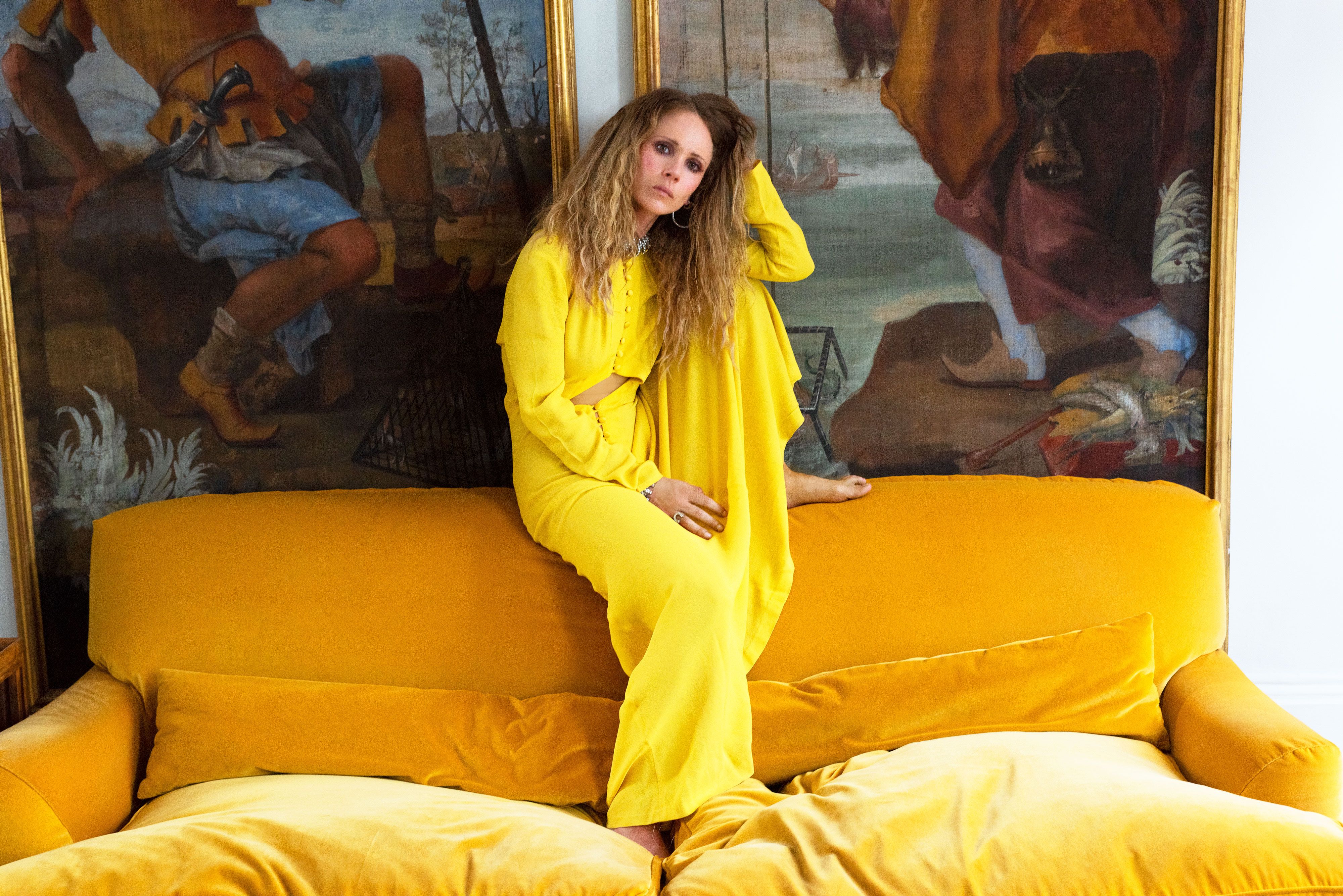
Temple poses in a residence in the UK.
What Temple loved about the script, and would come to love about the series, she explains, is “it was so nuanced in such a beautiful, intricate way that also wasn't preachy. It didn't feel corny to me. It felt very human.” Which is a twist in and of itself, because Ted Lasso has a very corny logline: An American football coach gets a job coaching “football,” a.k.a. soccer, in the U.K., but unbeknownst to him, he was hired, basically, as a prank; fish-out-of-water hijinks ensue.
Temple's gut reaction to the script was solidified by Sudeikis. He had a plan, she recalls, for the way every character was “going to surprise people” with their emotional depths and contradictions, starting with Ted, whose pathological sunniness deflects from the ache in his own life: a crumbling marriage his positivity cannot salvage.
Sudeikis wanted Temple to be Keeley Jones, a cheerful, former Page Three girl dating Jamie, the team’s young, hotshot star. Keeley describes herself in season one as “sort of famous for being almost famous;” when we meet her, she’s doing a bit of modeling but mostly hangs around her boyfriend’s team’s locker room. The arc Sudeikis described intrigued Temple, especially when it came to Keeley’s relationships: a love triangle between Jamie and his teammate, Roy, which would prompt all three of them to grow (“that sounded just playful and brilliant,” Temple says). Season one would also establish a friendship between Keeley and Rebecca (Hannah Waddingham), the team manager, who is older and icier and does not appear, at first, to be the sort of person whom Keeley would befriend.
Get exclusive access to fashion and beauty trends, hot-off-the-press celebrity news, and more.
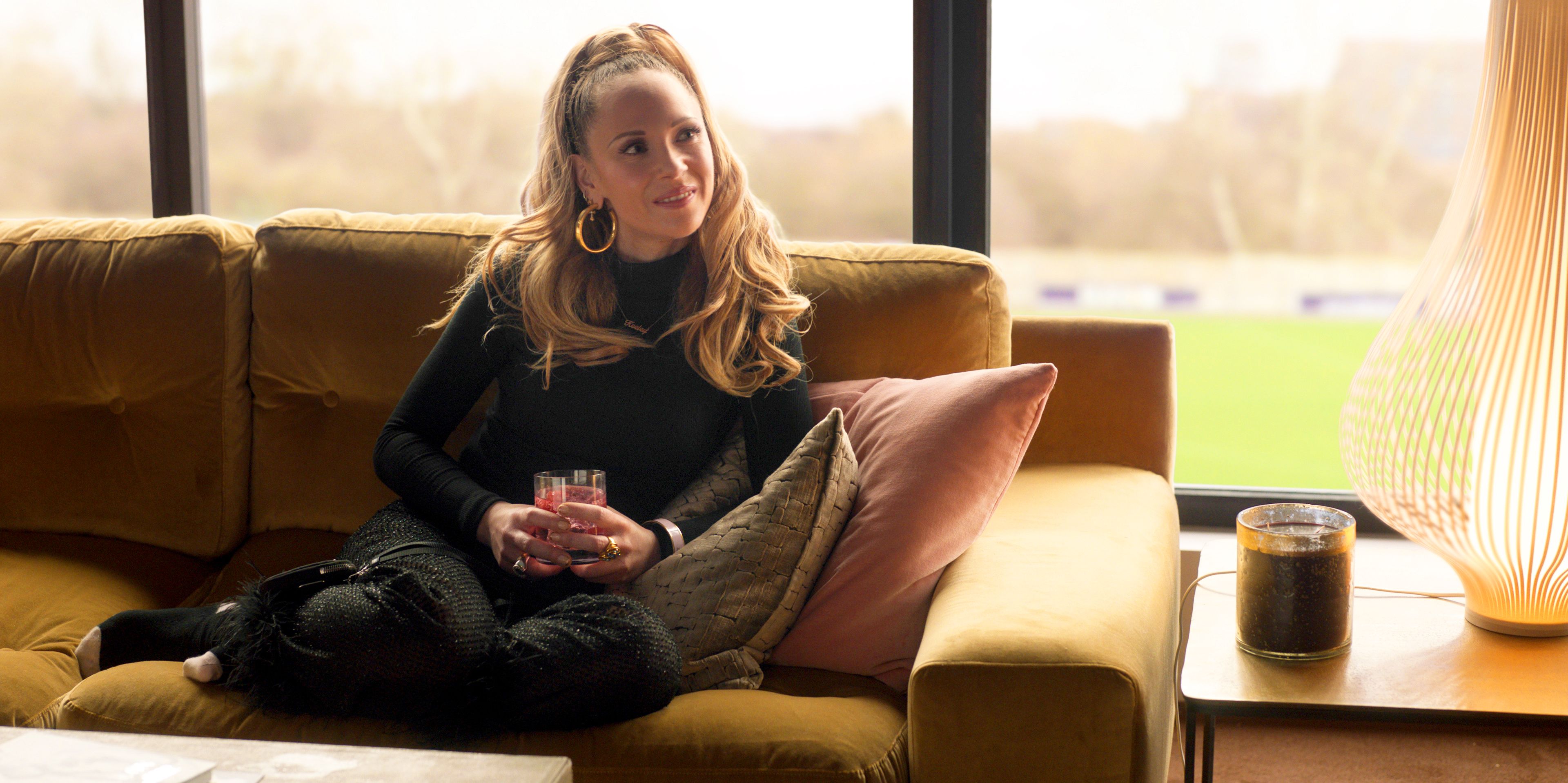
Temple as Keeley in a moment from the upcoming second season of Ted Lasso.
Temple’s excitement about the role was laced with uneasiness, though, as she simmered in the worry that she hadn’t really “earned” the part because she didn’t have to audition. “It was nerve-wracking for me. And I was frightened, actually.”
But Temple’s Keeley became, like the show itself, someone you can’t help but root for. She’s a WAG, sure, but her energy is less Rebekah Vardy v. Coleen Rooney, more Tami Taylor x Fran Fine. (When Keeley starts taking herself seriously as a career woman, she buys herself a Barbie-pink notebook with the words “My Adventures As A Unicorn” emblazoned in shiny letters across the cover.) She is her friends’ most devoted hypewoman, the advocate who believes enough in the people around her to actually hold them accountable for their bad actions. Because she knows they can do better.
I’d started my conversation with Temple with what’s become a perfunctory opener—How has your year of Covid been? Are you and your family okay?—and she responded by detailing the number this brutal stretch had done on her mental and emotional health: heightened anxiety, waves of insomnia that left her “incredibly nocturnal,” body image struggles that were intensified by how trapped she felt at home just staring at herself in the mirror and the postage-stamp picture of her face in the corner of every FaceTime call, “hating parts of your body, exteriorly, and then having to remind yourself that it’s okay to not be a certain size, a certain height, all of those things.”
Temple's struggles probably sounds familiar, at least in part, to those who've spent the pandemic isolated, terrified, and grieving. When Ted Lasso premiered on Apple TV+ in August 2020, the United States had just surpassed 5.4 million COVID-19 cases nationwide and pandemic-related deaths exceeded 1,000 per day. The air above California was so thick with fire that the blue sky burned orange, and the fate of democracy seemed to hang in the balance.
It might, at first, seem like Ted Lasso was failing to read the room. It turned out to be just what audiences were seeking: a straight shot of sunshine, a glimmer of joy in an otherwise joyless year. It was the kind of show you would have to cajole your cynical friends into watching—a soccer show? Based on a commercial?—only to witness them first begrudgingly, then wholeheartedly, embrace the most lovable breakout of the year.
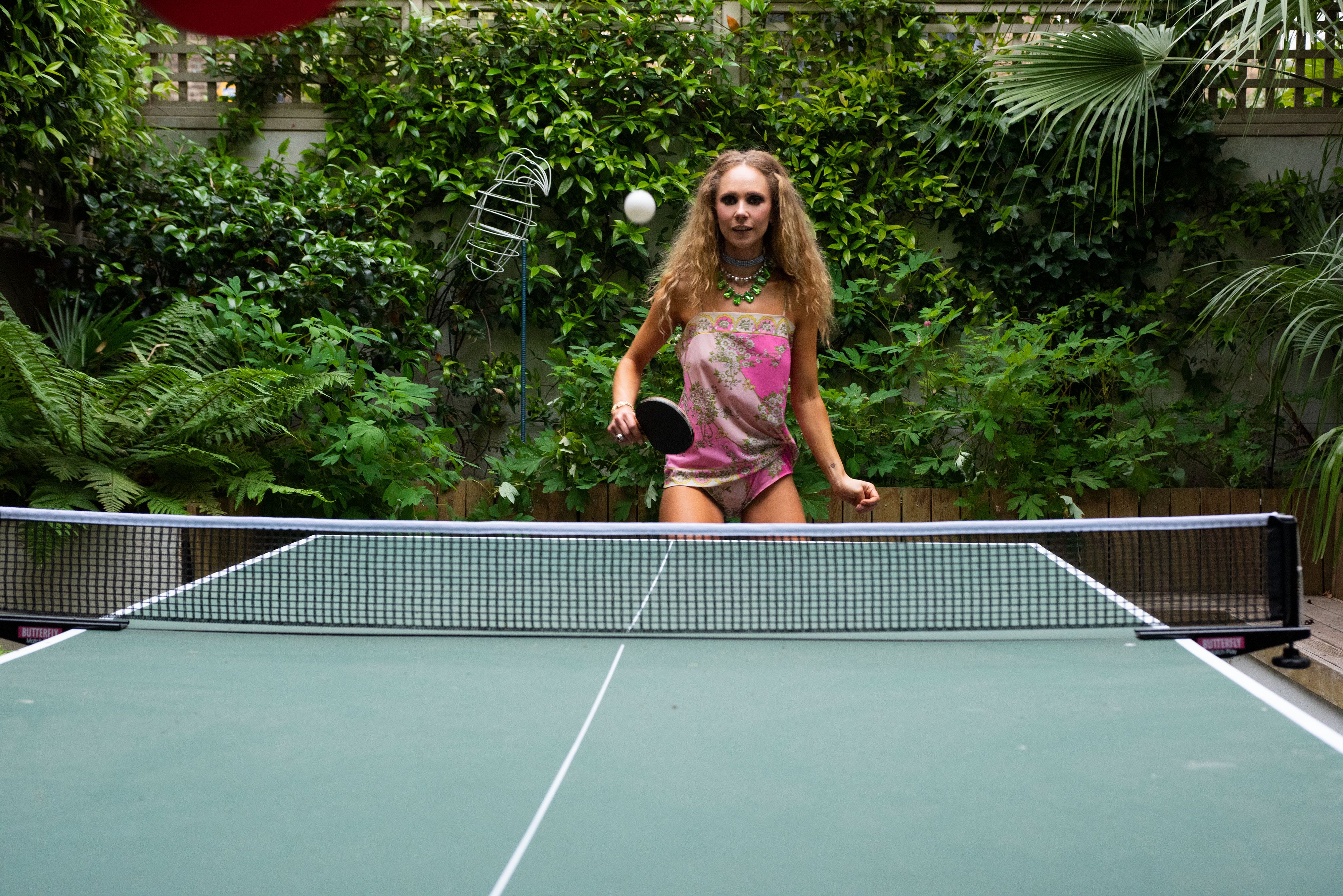
On accepting the Ted Lasso role: “It was nerve-wracking for me. And I was frightened, actually.
Not that Ted Lasso would’ve made much sense if it had premiered in any other year either. Just five years earlier, the pop culture commentariat were hailing “the rise of the sadcom.” It was prime time for half-hour shows that were technically branded as comedies but could feel like anything but, whose fixations were the dark, harrowing corners of the human experience: addiction and depression self-loathing and nihilism, trauma and PTSD, from BoJack Horseman to Rick and Morty to You’re the Worst to Girls to Louie.
Juno's the fucking light... She’s alive and she’s excited to be with whoever she’s with, and she cares about them.
But the triumph of Ted Lasso solidifies that we are in an era of warm and fuzzy viewing, heralded by the eventual critical acclaim of shows like Schitt’s Creek and The Good Place. Shows that charm even the most jaded of viewers with the almost childlike questions at their heart: What if you can learn to be a better person, if you just try really hard, and the people around you give you room to grow? What if, when you made a mistake, you apologized and were forgiven? And what if the show that resulted from those questions wasn’t so corny you wanted to die but was actually good and funny and made you feel happy all over?
Playing Keeley, Temple says, had the same effect on her personally that watching the show had on many of its fans. “She really has helped with my ability to stay positive.”
“[Juno's] the fucking light. I don’t know how else to express it,” says Brett Goldstein (no relation), a Ted Lasso writer and actor. Although prior to Ted Lasso, Goldstein had only seen Temple “in heavy, heavy, heavy shit,” he was quickly struck by her comedic timing and abilities.
“Her eyes are giving everything. She’s alive and she’s excited to be with whoever she’s with, and she cares about them,” he says. “I always think there’s a thing with some actors… where you just sense they have goodness in them, even if they’re playing a bad guy. They’re very different actors, but [take] Tom Hanks: Even as a disgusting villain, in his eyes, you know he’s good. And I think Juno had those sort of eyes. I think it’s pretty hard to not like her.”
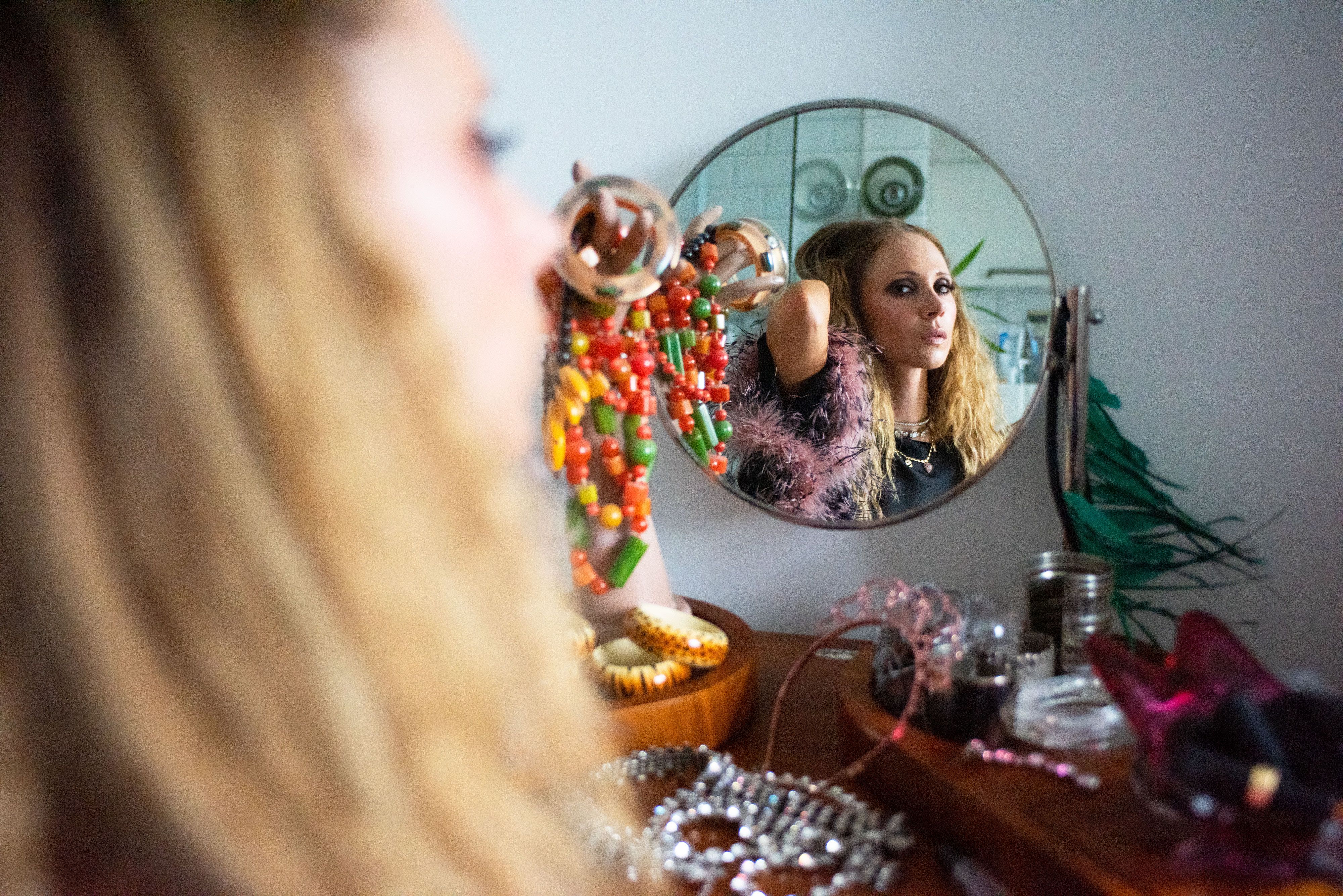
“I think in Keeley's life thus far, people have always judged her cover [and] not bothered to read her book.”
Temple’s ability to earnestly sell the silliest-sounding things—like when she sweetly pleads with Roy, who wants to take their relationship slow, to “just touch your ass, a little bit? Or maybe you could touch mine?” while they make out—led Goldstein and the rest of the writers room to tweak the character. Her lines got longer and loopier and leaned into Temple's natural exuberance and cleverness. “We didn’t change the story of Keeley,” Goldstein says, “but how she spoke and how she was funny changed, because Juno was much funnier than what we’d written for Keeley.”
Though Keeley dates two men on the team, the real love story of the first season is her friendship with Rebecca. A different sitcom would see Rebecca and Keeley as natural enemies (or just never bother putting them on screen together); on Ted Lasso, “they open each other’s eyes about themselves,” Temple says.
“I think Rebecca is the first woman in Keeley’s life to ever say, ‘You actually have a really great brain [and] you should use it,’” says Temple. “[And] Keeley reminds Rebecca it's okay to be vulnerable and it's also important to embrace your femininity for yourself, not for the broken hearts that you've had throughout your life. They encourage each other, honestly, I think, to be the most exciting and fruitful versions of themselves, without being competitive, without being bitchy, without any kind of ulterior motive other than just wanting to see each other be as happy and as fulfilled and as magic as possible.”
Season two, which begins streaming July 23, finds Keeley doing for Roy what Rebecca did for her: gently nudging him out of his comfort zone toward a career opportunity she knows he’d crush if he just got over himself. Characters in this world “are not afraid to call each other on things and learn from things and just try and take in information, be it good or bad, to develop into an even more [well]-rounded human,” Temple says. “I like the unpredictability of what kindness and respect do.”
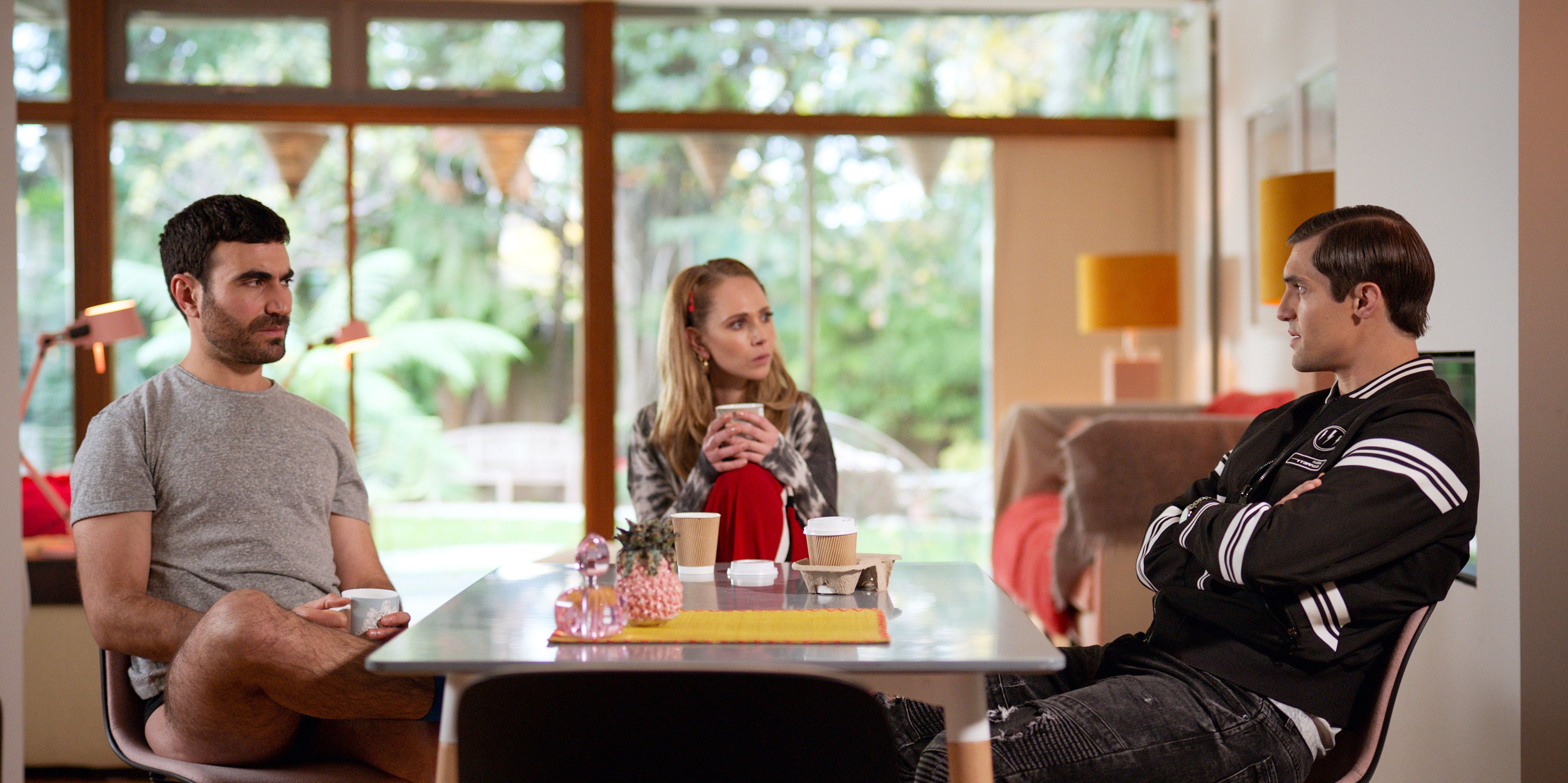
From left: Goldstein as Roy, Temple as Keeley, and Phil Dunster as Jamie Tartt in an awkward yet endearing season one exchange.
Though Ted Lasso has really allowed Temple to discover and express her comedic gifts, she hasn’t entirely left dramas behind: She played a mom struggling with drug addiction in 2020’s Palmer and a conflicted heiress in the sultry, surreal Little Birds, based on a collection of Anaïs Nin's erotic short stories, which premiered in January.
Upon reflection, Temple thinks she’ll be able to bring even more range to her characters going forward. “The more you experience and the more knowledge you gain, the better you are as an individual on the planet—and also definitely as an actor, because you just have more to tap into,” she says of the forced pause of COVID. That break in work and in life, “meant that it was time to process some things and actually maybe listen and learn a bit about your brain in a way that you hadn’t necessarily made time for.” In her case, that meant facing and reevaluating her lifelong fear of growing up. “I've got perpetual Peter Pan syndrome,” she says. “And I think this was a kind of reality check in that actually getting older is a really beautiful thing.”

“I've got perpetual Peter Pan syndrome,” Temple says of herself.
Has it hit her that she’s part of something that’s really blowing up? “This is naïve, perhaps, but I hadn't really thought about it,” she says, though she’ll probably have to soon. Ted Lasso didn't just resonate with fans but earned critical adoration too. Accolades are pouring in as we speak. Literally. In the middle of our interview, Ted Lasso won a Peabody Award. And not too long after our conversation, the series was nominated for a stunning 20 Emmy Awards, the most ever for a freshman comedy, including a best supporting actress nod for Temple—her first.
Maybe this year, she'll be able to properly celebrate with the costars she adores. Given pandemic restrictions, season one's Golden Globe nominations and Critics Choice Awards victories had to be acknowledged with a “new weird version of a wiggle and a squeal” you could see through a screen, she says. She wishes she could've hugged Goldstein and Sudeikis and Waddingham, but, in a very in-character move, she was able to find delight in the workaround they made. “It was like creating a new joy language.”
Styling: Serafina Sama / Creative Direction: Valerie Sadoun
Jessica M. Goldstein is a freelance writer covering all things culture. Her debut novel, RETRO, is coming out from Ballantine Books in 2026. You can read her in The New York Times, Vulture, McSweeney's Internet Tendency, and more.
